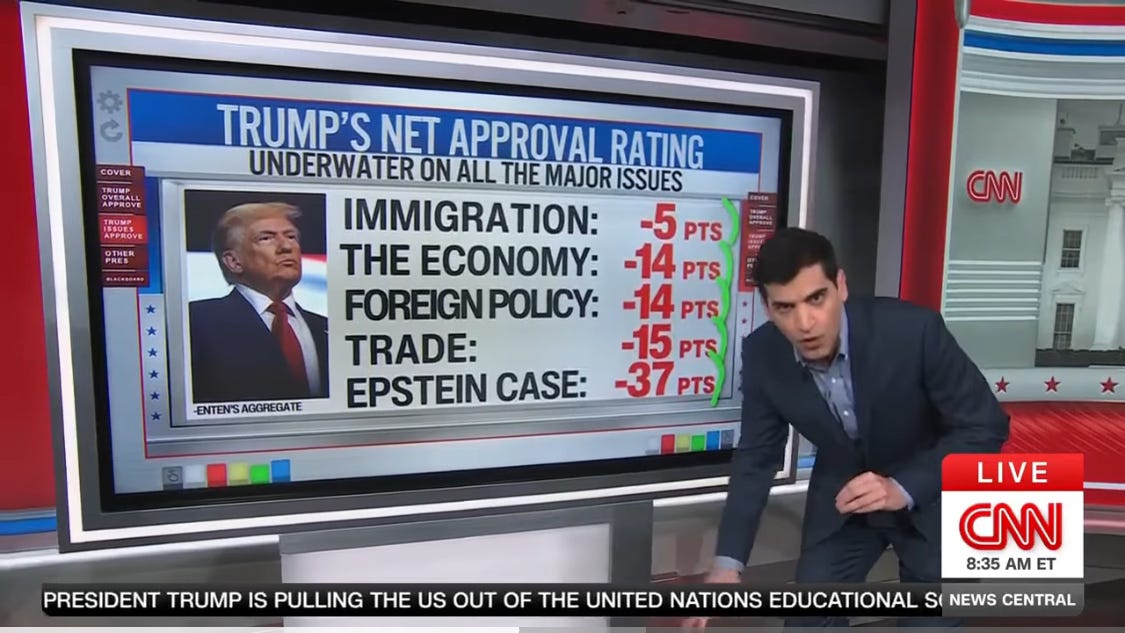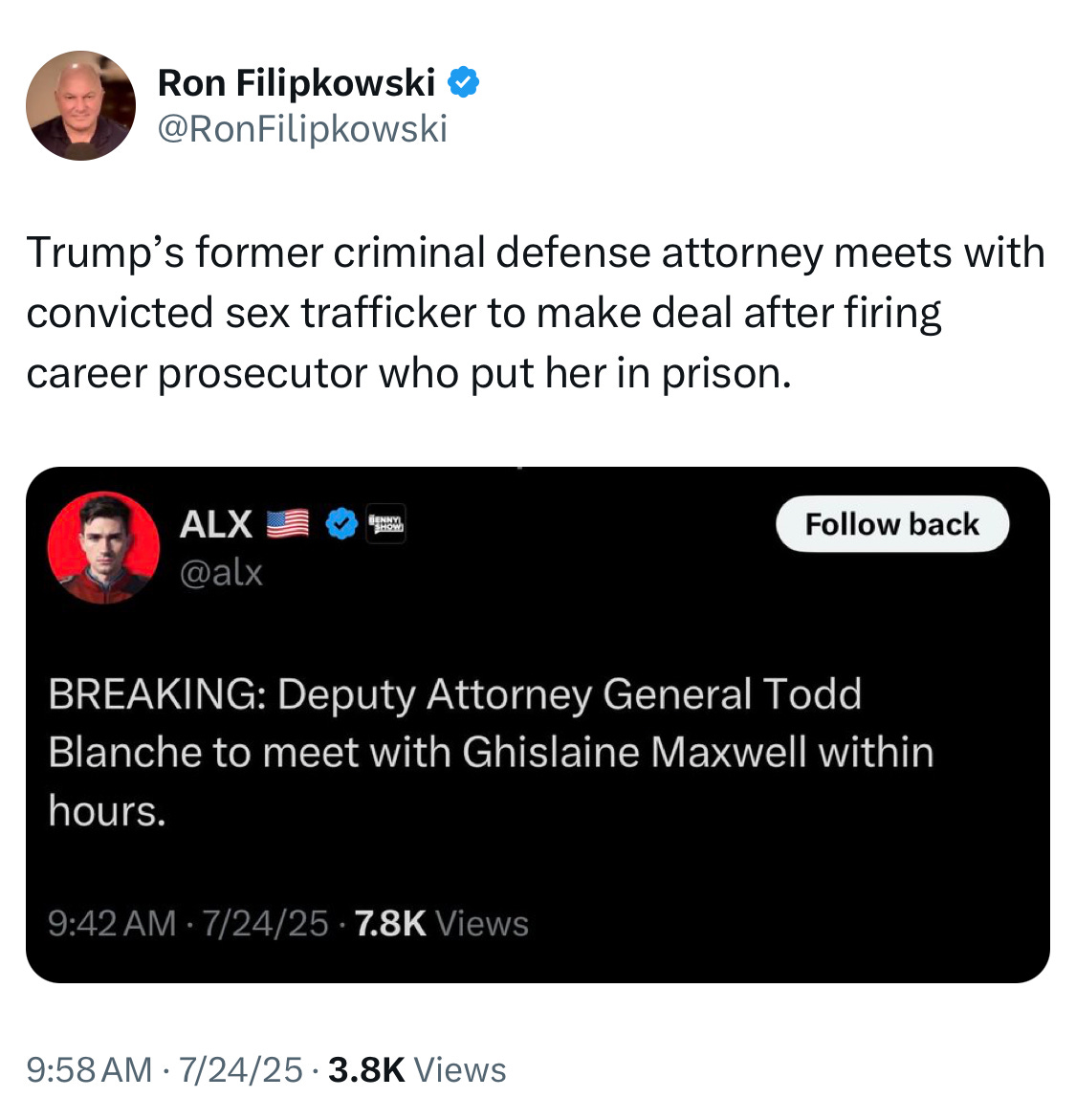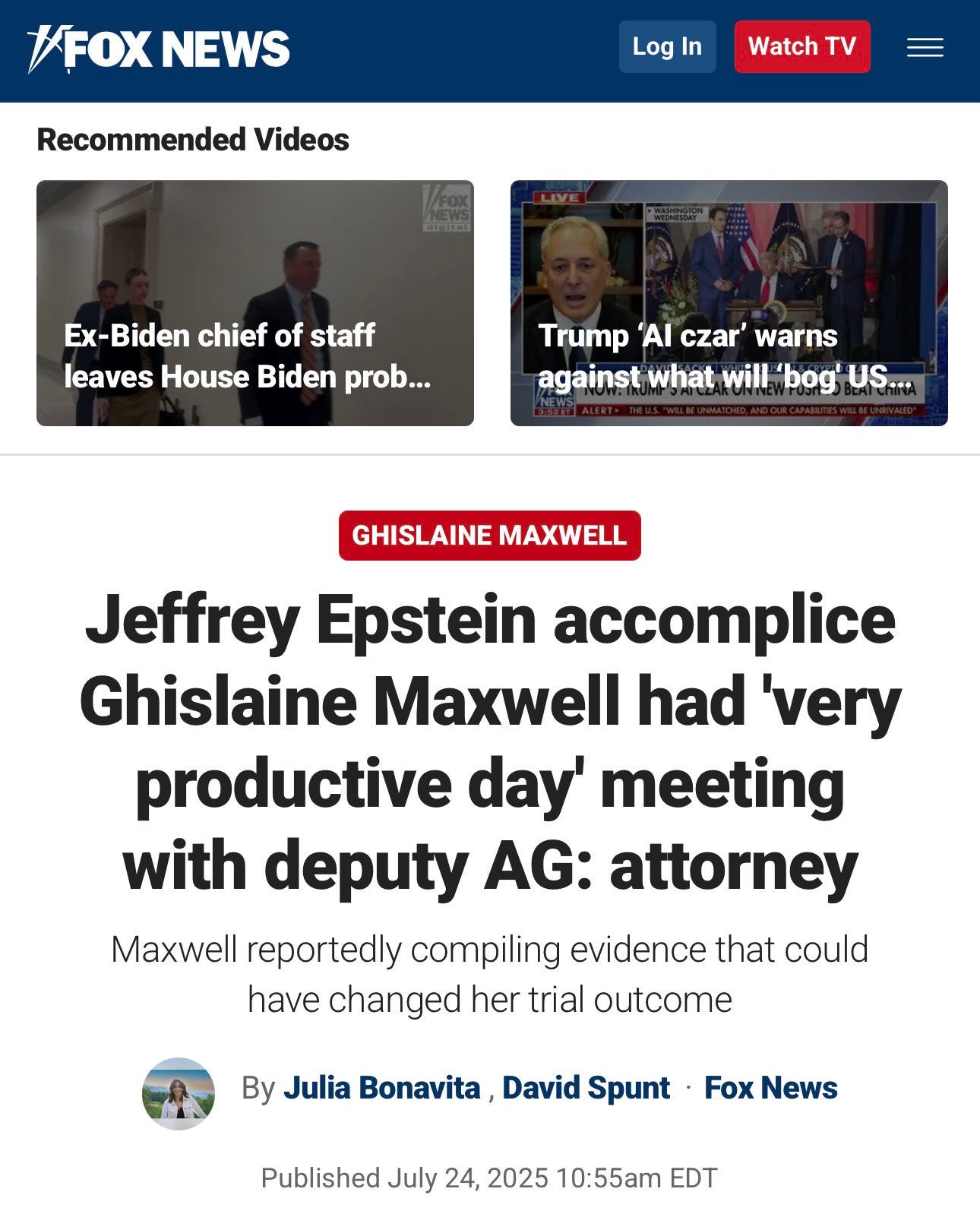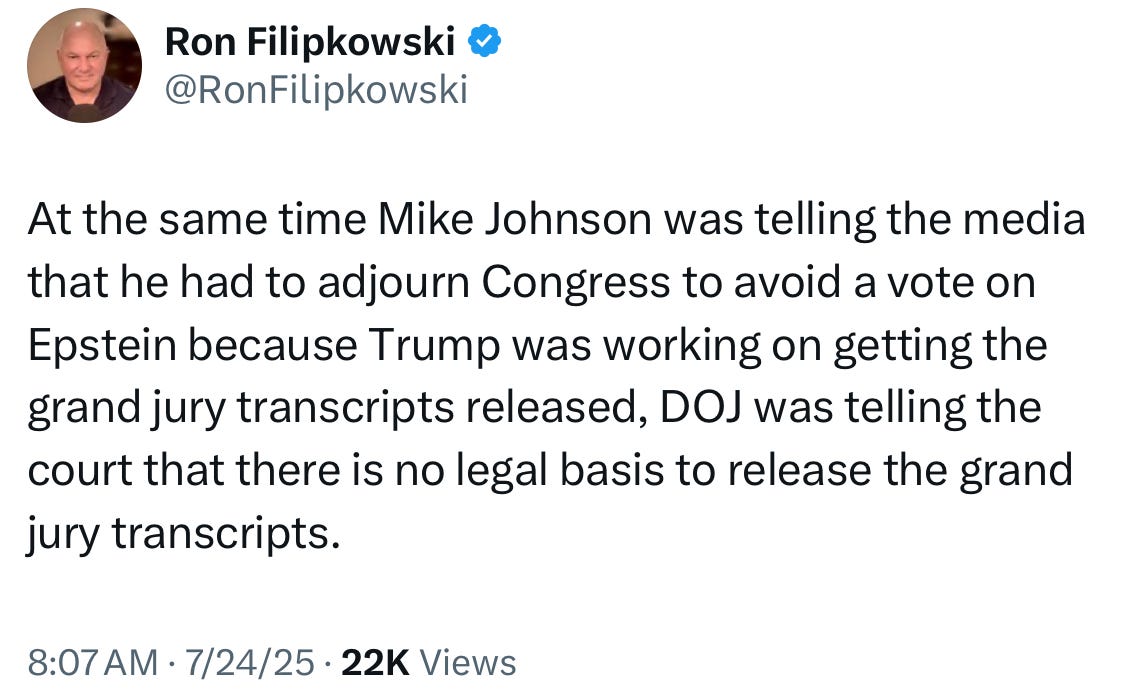Gen Z’s Flight From Trump
Zoomers turned out for Donald Trump in 2024. Now, many of them are walking away disillusioned.
Alex Wei looks a little nervous on camera beneath his scraggly mop of curly hair. He’s sitting in his one-bedroom apartment, shooting a new video for his YouTube channel. A lonely acoustic guitar stands in the background. His studio equipment consists of only an iPhone, in keeping with Gen Z’s preference for low-production value, signaling authenticity and relatability.
Everything about the setup screams “recent alum” trying to figure things out. The description of Alex’s vlog is “self-improvement, personal stories, and thoughts on life.” The title of this episode? “I Voted for Trump And I Regret It.”
Alex is one of a growing number of Zoomers who voted for Donald Trump and are now experiencing buyer’s remorse. That has given rise to conflicting theories on the left and right regarding the true source of their dissatisfaction, with each side wishingcasting their heart’s desires into the well of data.
One of the most notable voting trends of the 2024 election was that Gen Z appeared to shift dramatically to the right, especially young men like Alex. It left Democratic data scientist David Shor stunned.
“Young people have gone from being the most progressive generation since the Baby Boomers, and maybe even in some ways more so, to becoming potentially the most conservative generation that we’ve experienced maybe in 50 or 60 years,” he said.
The media made a whole lot of hay with what appeared to be the political equivalent of Earth’s magnetic field flipping: conservatives were suddenly the cool kids.
Or rather, the “cruel kids.”
In a cover story for New York Magazine, Brock Colyar attempted to capture and impugn the youthful vibe swirling about Trump’s inauguration in the Imperial City, where liberals had gone into full retreat before his conquering shadow. Colyar’s article, “The Cruel Kid’s Table,” featured a flattering photograph of a group of young, well-dressed Republicans living large in the afterglow of Trump’s triumph over Kamala Harris. One 28-year-old conservative influencer described the environs thusly: “It’s Republican Coachella, and Donald Trump is our Beyoncé.” The images from that night evoke scenes from Baz Luhrmann’s “The Great Gatsby,” with pleasant physiognomies not seen since the Gilded Age, when America basked in ill-fated opulence. Maybe that was foreshadowing of the coming crash.
All the most recent public opinion polling indicates that Trump’s support among Gen Z has collapsed. That could change, but it’s our reality right now. One of the most widely cited figures comes from a CBS/YouGov survey conducted between July 16 and 18, which found that Trump’s approval among those aged 18-29 plummeted from 55 percent in February to 28 percent in July.
The question is why. What made the pendulum swing so violently?
In a tweet that has more than 14,000 likes, a young woman named Maia Mindel declared that the notion Gen Z is conservative has been found “dead” six months into Trump’s second term. Based on her profile, it’s safe to assume that she is on the left and clearly thinks that this bodes well for the future. But if you read the replies beneath her tweet, you’ll find a different interpretation of the data.
“This poll doesn’t indicate what you think it does,” wrote Aedmar Skýjárn, a pseudonymous right-wing poster. He included a picture of a smiling Ralph Fiennes as Austrian SS functionary Amon Göth in “Schindler’s List,” implying that plunging support among Zoomers for the GOP stems from the fact that Trump is not the Hitlerian figure they had dreamed of and voted for. Some variation of this has become the standard line on the right for processing Trump’s declining approval overall.
According to CNN’s Harry Enten, Trump appears to be imploding faster than an OceanGate submarine on every big issue, from immigration to his handling of the Jeffrey Epstein scandal.
Trump’s net approval rating on all the major issues, minus-five points on immigration—his best issue, he’s underwater. How about the economy? That was what he was elected for—minus-14 points. How about foreign policy—minus-14 points. How about trade, in those tariff wars, minus-15 points, and, of course, the Epstein case, the lowest of the bunch, minus-37 points, 37 points below water. My goodness gracious, on every single issue, Donald Trump is below water on all the major ones. They’re all dragging him down, no matter it seems what Donald Trump does, the American people do not like it.
So, how is Dark MAGA responding to these numbers? By insisting that Trump isn’t being Trumpian enough for most Americans. “The country is to the right of Trump on all major issues,” claimed a poster who goes by BowTiedRanger.
It’s certainly true that there is a contingent of Republicans who believe that Trump hasn’t gone “hard” enough against his and their foes. This cohort eyerolls their older counterparts in the party, disinterested with talk of free markets, common ground, individual liberties, and traditional Republican support for Israel. Trump, in their view, is a means to a revolutionary end, a vehicle through which the GOP will be remade in their image, according to their concerns, fixations, and enmities. Trump 2.0 is their opportunity to darken the doorways of power and maneuver themselves into positions of influence, biding their time until, at last, the hero in history emerges to lead them into the final battle. And if this story sounds familiar, it is because the right has told it before, about Trump, who already campaigned on the “Final Battle.” Thus, he must now be retconned as not Adolf Hitler but as a precursor figure who still commands unflinching loyalty and is incapable of failure, only of being failed by his handpicked confidants. Something like that.
Overall, however, this narrative, that Gen Z’s break with Trump is primarily because he isn’t willing to burn the country to the ground and build a right-wing Mecca in Washington, is unconvincing. It seems to stem from a sense of frustration, a desire to beat one’s chest in the face of humiliation and disorientation. Cope, in other words. In fact, the same people who are saying today that Gen Z’s flight is due to Trump not being “based” enough were only yesterday proclaiming “Got What I Voted For” every time the administration unveiled some policy that made life worse for everyone else and, in particular, young people. Which is it, then? Nobody knows, least of all them. Indeed, if anything, Trump’s messaging and optics have been tailored to the tastes of this crowd. The performative cruelty of Studio Ghibli deportation memes. The trotting out of ghouls like Stephen Miller. The endless kitsch portraying Trump as a kind of Übermensch, a hunter of men, and vengeful spirit of a people scorned. The aesthetic transformation of the White House into a new right fever dream has happened in parallel with Trump’s rising unpopularity and the general public’s souring on his immigration agenda.
For a more accurate picture that I think represents how a much larger slice of Zoomers feel, it might be wiser to listen to what people like Alex have to say about why they voted for Trump—and why they’re walking away.
“An overwhelming amount of young people, especially young men, felt politically homeless at the time because we didn’t trust the Democrats,” Alex said of his rationale for supporting Trump. The lies about Joe Biden’s cognitive decline, the coronation of Harris as his replacement, the lecturing about “who to vote for and the moral high ground” from people “living in mansions and looting the economy.” All these things factored into his decision.
Like many young men, Alex said he felt completely alienated by the Democratic Party. It’s not a new story, but one worth minding because Trump won this demographic by a margin of around 14 points over Harris.
“We got the message that we were toxic, privileged but also useless.”
The “shaming,” he said, was too much, too absurd, especially to boys who have nothing, and whose prospects seem so bleak.
“The economy is broken, wages are flat, jobs feel meaningless, the dating culture is a complete mess, housing costs are becoming unaffordable, and the overall culture constantly tells men that we’re the problem. And that’s when it goes beyond politics and becomes something personal.”
Voting for Trump felt like giving a “middle finger” to the establishment, and it helped that he was putting together a team of what appeared to be political outsiders from across the spectrum. Tulsi Gabbard. Bobby Kennedy. Elon Musk, “back when people thought he was a genius.”
“It’s true that a lot of Trump supporters, even to this day, are simply just cult members who have some kind of weird emotional attachment to him and will never criticize him, no matter what,” he said, before reiterating that there were rational reasons for why people like him thought The Donald was a viable alternative.
What changed?
“Trump’s actions have betrayed the people who once believed in him.” Yes, Trump promised to drain the swamp. “But what did he do? Filled it with even more swamp creatures.” He pointed to Marco Rubio as an example, and said that Trump’s decision to bomb Iran was like spitting in the face of the anti-war movement that he courted. “No new wars means no new wars.”
The so-called “Big Beautiful Bill” also pushed Alex away from Trump because it cuts “the social safety net for ordinary people.” The disconnect between populist rhetoric and what he was seeing with his own two eyes became too great to ignore.
“His inner circle just looks like a hedge fund meeting, filled with the swamp of political and business elites everywhere.”
The third reason he gave for splitting with Trump was how the Epstein files have been handled, which seems to confirm Enten’s point that voters do consider this issue an important one. Many observers have been scratching their heads at that fact because, well, why would so many Americans care about a dead sex criminal? Part of it has to do with lingering questions about just who Epstein really was, the origins of his vast wealth, and whether he was connected to domestic or foreign intelligence agencies. A big conspiracy, the kind of thing no politician would dare to expose. Nobody except Trump, the outsider, the daywalker who has traveled in both worlds and is therefore immune to the kind of compromise that Epstein’s powerful friends are said to have fallen prey to. Trump tapped into this narrative when it suited him, vowed to bring “dark to light,” as fans of QAnon would say. And then, he didn’t. Instead, he recoiled in animal terror at who knows what and hasn’t stopped running scared since, demanding that the GOP block all attempts to release the files, personally trying to kill stories before they go to print, calling his top influencers and telling them to back off and toe the line, struggling desperately to control everything that the public sees and hears about the matter. People like Alex have taken note of that.
“Trump is obviously on the list,” said Alex, referencing Epstein’s list of associates. “The pictures, the mountains of circumstantial evidence, the testimonies, the reports. At some point, you just gotta ask yourself, if Biden tried to cover this up, would you be making the same excuses?”
Again, the level of gaslighting from the Trump administration around Epstein has been unlike anything I’ve seen in a decade. The diversions and deceptions are endless and impossible to avoid noticing. Never has Trump seemed so afraid of the unvarnished truth—the thing that only he was supposed to be willing to tell. The trouble is that there is no one with a big platform on the new right who would dare challenge Trump’s lies and therefore provide his movement some credibility. Not Tucker Carlson, not Steve Bannon, not Charlie Kirk, who is currently working on rehabilitating Epstein’s accomplice, Ghislaine Maxwell. That’s right.
Trump is reportedly considering cutting a deal with Maxwell, leniency in exchange for her providing details about her old friend—details that would, of course, exclude anything damning about Trump. In the intelligence business, this is referred to as a “limited hangout.” It’s what spy agencies do to manage perception by volunteering crumbs of truth to divert the public’s attention so that they stop demanding the really good stuff, which, in this case, are the Epstein files that Trump has been named in and is refusing to release. Maxwell, in Trump’s frightened mind, could be his ticket out of trouble. But don’t take it from me. Kirk spelled it out. “Maybe she wants immunity, maybe she wants some sort of protection, I don’t know,” he said on his show this week. “But it definitely is something that is worthy of praise, and worthy of our encouragement.” Newsmax host Greg Kelly echoed Kirk, somberly calling Maxwell a “victim.”
I’m not sure if it’s youthful idealism or what, but it seems that Zoomers do see through, or at least care about, these lies more than their generational peers. Epstein, in their eyes, was the twisted face of the system, everything Trump swore he stood against. Of course, he doesn’t, never did, and now Gen Z is grappling with that. Forty-one percent of Gen Z respondents to a July 18 YouGov poll said that Trump likely knew “a lot” about Epstein’s crimes before his arrest, while 42 percent believe the pair were “close friends.”
Alex’s overall experience is more in line with what we see in the data now. A closer look at CBS/YouGov polling that the new right takes as a sign that Zoomers, one and all, crave a more Hitlerian Trump actually shows that Gen Z opposes Trump’s immigration policies by the largest margin of any age group. Sixty-six percent say Trump has become “too tough” on the issue.
How about the economy and inflation? We hear from the White House how great Trump is on those things all the time. Well, Gen Z’s reality disagrees. Only 29 percent of them approve of how Trump is handling the economy, while 72 percent say that the administration is focusing “too much” on tariffs, and just 27 percent say he’s doing a good job of tackling inflation. What about DEI programs? Some 55 percent of Gen Z thinks Trump is focused on ending them “too much.” A thing to keep in mind here is that Trump’s anti-DEI crusade has also undermined scientific and medical research that isn’t political, so there’s a chance that some Zoomers see it as an indiscriminate and counterproductive war.
These numbers are showing up everywhere.
In a poll conducted by Morning Consult between July 18 and 20, 72 percent of Gen Z disapproved of Trump’s job performance. A recent Harvard Youth Poll found that nearly half of young men believe Trump is destroying the economy. And according to a new YouGov/Economist poll, Trump’s support with Gen Z voters is sitting around 28 percent.
None of this should be surprising. Since taking office, Trump has done nothing but make their lives harder, while his media allies have asked them not to believe their lying eyes. Take, for example, a recent podcast between Kirk and Carlson, in which the duo discussed the issue of “debt slavery” for Gen Z. You see, these two aren’t like stodgy, callous Republicans. Their hearts are with the youth. That’s why Carlson campaigned for Trump, who, upon taking office, rolled back consumer safeguards imposed on the “buy now, pay later” providers used by upwards of 44 percent of Gen Z. It would be truer to say that Carlson campaigned for debt slavery, and Zoomers are getting what he asked for.
Meanwhile, student loans continue to rise, with Gen Z reporting monthly payment burdens of over $500 at a time when we seem to be in a stealth recession or something like that. What’s Trump doing about it? He recently proposed “no tax on capital gains” for home sales. That sounds great. If you own a home, which Zoomers can’t actually afford. The number of first-time homebuyers is currently at half the historical norm. But at least it’s good news for those lucky young people who are homeowners, right? Well, no. Not unless the profits of the sale exceed $250,000 for single filers or $500,000 for married couples filing jointly. In other words, it is a policy win for those who are already better off, and a slap in the face to those who are just starting out.
The prices of homes are skyrocketing, hitting an all-time national median sale price of $435,300 in July. Food prices are soaring, with beef hitting record highs. Most Americans cannot afford what Ludwig Institute for Shared Economic Prosperity calls the “minimal quality of life.” This is the world Trump is leaving Gen Z, a wasteland called the “golden age.”
What happens next is unclear. I do believe that a young faction of hard-right Republicans will continue gaining influence within the party in the years to come, but that is a separate issue from the mostly Millennial and Gen X Trump supporter delusions, whose only refrain to doubters, including Gen Z, is that every betrayal, every regressive policy must be tolerated because Trump is going to “deport them all” or something inane like that. He won’t, obviously. He will fail. In fact, the only thing he has succeeded at is improving how Americans feel about immigration. It turns out that most people do not have the new right’s taste for theatrical cruelty.
It’s also unlikely that Gen Z will, in the near term, simply turn toward the arms of the Democratic Party, unless it undergoes a rapid and convincing reform. Specifically, it would have to convince young men like Alex that it doesn’t hate them. I tend to agree with Jean M. Twenge, a psychology professor who said that Zoomers as a “uniquely pessimistic generation.”
Twenge’s study of Gen Z high-school seniors found that they are more likely than previous generations at the same age to agree with the statements “It is hard for me to hold out much hope for the world” and “I often wonder if there is any real purpose to my life in light of the world situation.” I should also add that Twenge’s research appears to dispel what I suspect would be another line of cope: if Gen Z is less inclined to be hard right as a whole, then that is because it is also less white. But according to Twenge’s data, fewer white young adults identified as conservative in 2024 than did in 2016.
I think that just confirms that a lot of these kids feel like Alex. In Trump, they saw a savior, a challenger, a truth-teller. Someone whose bold campaign promises pierced the shroud of pessimism that has enveloped their lives. Now, some are seeing that this person was just a mirage, and they are turning away from the illusion and trying to figure things out again. Good for them.








OMG Trump has been President for six (6) months. Can we please wait until the end of his presidency before passing judgment. And quoting CNN & CBS is so partisan.
Everyone agrees Kamala Harris would have been a disaster. Trump is a one-term president so it doesn't matter what his poll numbers are to anyone except for - perhaps - JD Vance. The deportations have to be theatrical so the uninvited guests who have been streaming into this country since the passage of Ted Kennedy's HART CELLAR ACT get the message. RFK and Tulsi have been good for this country so far. I like how Tulsi Gabbard has become a One Woman Church Commission. War? Fingers crossed that Operation MIDNIGHT HAMMER is no different than Operation EL DORADO CANYON. One and done. Tariffs are a needed remedy. So is protectionism. Alexander Hamilton understood that. So did the four men on Mount Rushmore.
Don't let the perfect be the enemy of the good.
Because Trump is FAR from perfect.
As for The Epstein Files? Trump has been the most philosemetic president in American history. With Israeli tanks shelling Catholic churches in Gaza and Israeli settlers beating American citizens to death in Taybeh, the last thing Netanyahu wants is the black eye to Israel will receive when the American people understand who was paying for Jeffrey Epstein's kompromat operation. And if Netanyahu isn't happy then Trump isn't happy.